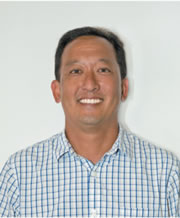Korean Style
THE KOREAN FESTIVAL IS SET TO TAKE PLACE SATURDAY, JULY 11, AT MAGIC ISLAND. MORE THAN MERELY A CULTURAL EXPERIENCE, THE 14TH ANNUAL FEST SEEKS TO UNITE THE COMMUNITY

This year’s 14th annual Korean Festival will feature crowd favorites like a kimchi-eating contest. Photo by Toby Tamaye
Had Koreans never set foot in Hawaii some 112 years ago, things would be drastically different today.
Kimchi fried rice may have never found its way into nearly every restaurant in the state. Keeaumoku Street might not be affectionately known as “Korea-moku.” And less time might be spent indulging in Korean dramas or memorizing lyrics to K-pop songs.
So it’s this appreciation for a culture that has become so deeply a part of the Islands that Hawaii Korean Chamber of Commerce seeks to perpetuate annually with its Korean Festival. This year, it is set to take place Saturday, July 11, at Magic Island from 10 a.m. to 9 p.m.
“It’s a source of cultural pride for the Korean community to proudly show our culture,” says festival general chairman Rex Kim.
Close Ties
In 1903, a group of 102 Korean immigrants disembarked the RMS Gaelic in Honolulu. Here to work on sugar plantations, thousands more would come to Hawaii over the next few years.
Nearly 100 years later, the Korean Festival began as a prelude to the centennial anniversary of their arrival in the United States and Hawaii.
“It started off as very grassroots,” says Kim, who has been involved with the Chamber since the early ’90s, and the festival since it first began.

Korean Festival general chairman Rex Kim
MISSY ROMERO PHOTO
“It was really tough to get Korean businesses to participate because they’d never done it before. It was learning by trial and error.”
Today, the festival welcomes roughly 30,000 in attendance.
There’s a story Kim says he likes to tell, one that truly captures the spirit of the festival. The details change every year, but it’s always the same scene.
It begins with a Korean grandma and her grandchild, whois4or5yearsold. Looking at the child, Kim says, you might never be able to tell they are Asian. Then, the child will play with a Korean fan or sample a Korean dish and express pleasure, maybe even
surprise.
“The grandma goes, ‘See? You’re Korean, that’s why. This is your culture,’” says Kim.
“It’s very gratifying for all of us who are doing this. That’s my payment.”
And it isn’t only intergenerational families the festival unites — it’s the entire community.
Some of its biggest and most enthusiastic supporters, Kim notes, are in fact non-Koreans. It’s a trend he credits to the rising popularity of Korean dramas and music — an always popular song contest at the festival, for instance, is a testament to this.
Pop culture aside, the festival’s greatest intention is to share Korean history and heritage with all in attendance. There are, says Kim, many things that even Koreans living here may know little of.
Syngman Rhee, for example, resided in Hawaii while Korea was occupied by Japan. He later returned and became the first president of South Korea. Rhee passed away in Hawaii in 1965 after moving back to live here in exile.
“There’s a close history here,” says Kim.
Korean Fest
This year’s daylong festival will be similar to years past.
Staples like the kimchi-eating contest will take place, along with new additions such as one that will also ask participants to hurriedly race through eating jajangmyeon (Korean noodle dish).
And in keeping with its desire to be a bridge between young and old, organizations and performances throughout the day will offer a little bit of both.
For some historical context, expect groups like Korean Artists Association of Hawaii and Korean War Veterans Association to be in attendance.
“The Korean War veterans talk about America’s involvement in Korea from the very beginning,” says Kim. “Very proud guys.”
Toward the end of the festival, crowds will be treated to the history of K-pop as shown through dance.
Plus, there also will be more parking, shade and food — changes the organization made after taking a spot-survey during last year’s festival.
It’s the involvement of Korean vendors especially that Kim hopes will greatly benefit from the festival. It is, he explains, a great way for mom-and-pop Korean restaurants and businesses with owners who may not speak English to gain new, non-Korean customers.
Proceeds from the festival go to the Chamber, which uses it to fund service projects. This includes an annual scholarship presentation that will take place in the morning, and will award three high school students who have been selected by the Chamber for their achievements, civic involvement and leadership.
“I just want to encourage people to come out,” he says. “But I would also like to encourage the Korean businesses to come out and support because it’s their festival. It’s the Korean Festival.”
For more information on this year’s 14th annual Korean Festival, visit koreanfestivalhi.com.





